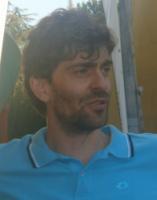Turrini, Mauro | Italy

Since my Ph.D. at Padova University research, I have analysed biotechnological innovations in healthcare with a special attention to the application of genetics in medicine, adopting a science and technology studies perspective and an ethnographic and qualitative approach. Afterwards I worked for Padova University, and several other social research centres, such as Observa – Science in Society, and IRES, Institute for Economic and Social Research. I published around twenty articles on these issues on both edited books and Italian and international reviews, including Etnografia e Ricerca Qualitativa, Human Studies, Salute e Società, Scienza & Politica, Studi Culturali, Spontaneous Generations, Tecnoscienza, Visible.
Project at IAS-STS: Styles of governance and practice of preimplantation diagnosis
Developed on the platform of in vitro fertilization (IVF), preimplantation genetic diagnosis (PGD) is used to provide a genetic analysis of embryo prior to be implanted in the womb, increasing at the same time the medical ability to intervene in human reproduction and the parental choice of having children without certain kinds of disease. Recently, PGD developed into a common diagnostic procedure in pregnancy health care in European countries, even in those that have traditionally restrictive policies. However, notwithstanding the process of harmonization of regulations for the delivery of reproductive technologies promoted by EU agencies, access to and practices of PGD continues to vary in different countries, especially in those with restrictive policies such like Austria, Germany, and Italy.
The research project intends to investigate PGD as a complex artefact which is embedded in contingent and plural frames of interpretation and, as such, is differently discussed, governed, and practiced by different set of actors, in different countries and in different periods of time. Adopting the science and technology studies (STS) methodological imperative, the research will follow the trajectories of PGD through society, focusing in particular both on the complex machinery of its regulation and on the practical arrangements that shaped and still shape the access of patients to it. In order to grasp the differences of PGD arrangements, a comparative analysis of the divergent styles of governance and practice of PGD delivery in Austria, Germany and Italy, throughout the 1990s up to the present, will be conducted paying a particular attention to the perspectives of and the roles played by the different actors who are involved in PGD as professionals, as patients, as activists, or as institutional actors.
Selected Publications
“Continuous Grey Scales versus Sharp Contrasts: Styles of Representation in Italian Clinical Cytogenetics Laboratories”. Human Studies, 35 (1), 2012: 1-25.
(co-authored with F. Neresini) “Biobanche della vita. Tessuti, cellule e frammenti di DNA tra scienza e società” (“Banks of life: Tissue, cells and DNA fragments between science and society”). In L. Caenazzo (ed), Biobanche. Importanza, implicazioni e opportunità per la società (Biobanks: Importance, implications and opportunities for society), Libreria universitaria, 2012, in press.
(co-authored with A. Lorenzet) “Salute, cittadinanza e percezione del rischio. I casi della donazione di sangue e degli xenotrapianti” (“Health, citizenship, and risk perception: The cases of blood donation and xenotransplantation”). In F. Neresini and G. Pellegrini (eds), Annuario scienza e società 2012 (Science and Society Yearbook 2012). Bologna, Il mulino, 2012.
(co-authored with I. van Keulen, F. Brom and O. Lev) “Cognitive enhancement: Scenario, perspectives and dilemma”. Salute & Società - Health & Society, 2012, in press.
Biocapitale. Vita e corpi nell’era del controllo biologico (Biocapital: Life and bodies in the age of biological control). Verona, Ombre corte, 2011 (ed). The book has been reviewed both by F. Rahola and B. Vecchi, Il Manifesto, July 12th 2011, and by M. Perrotta, Tecnoscienza, 2011, 2 (2).
